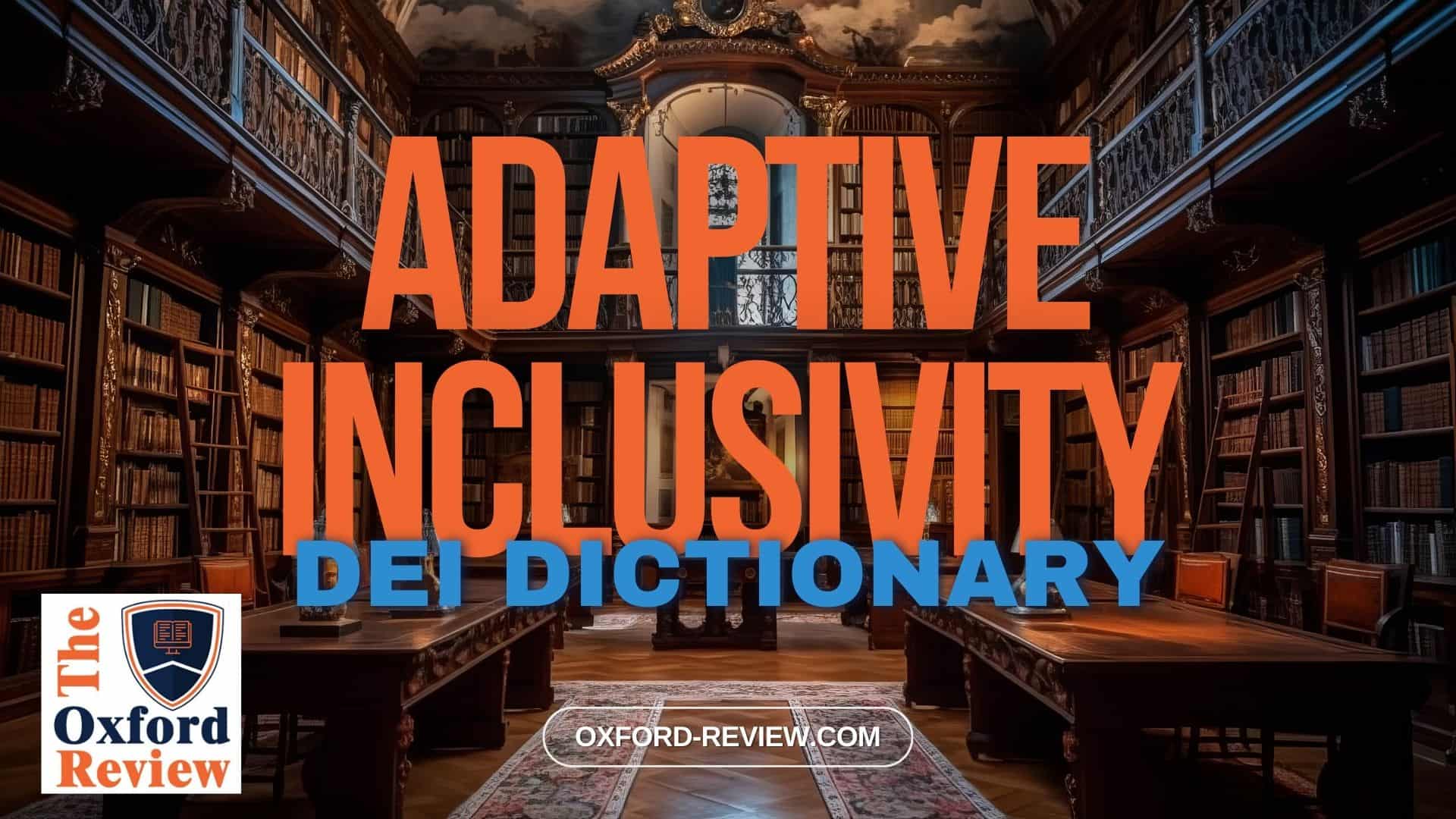Adaptive Inclusivity – Definition and Explanation

Understanding Adaptive Inclusivity: Fostering Diversity and Equity
In the realm of Diversity, Equity, and Inclusion (DEI), Adaptive Inclusivity emerges as a pivotal concept. It signifies an approach that actively adapts to accommodate diverse perspectives, backgrounds, and needs within organisational and societal frameworks.
Definition:
Adaptive Inclusivity embodies the proactive adjustment of systems, policies, and practices to ensure the full participation and representation of all individuals, irrespective of their differences. Unlike traditional approaches to inclusion, which may adopt a one-size-fits-all mindset, Adaptive Inclusivity recognises the dynamic nature of diversity and responds accordingly. It acknowledges that individuals vary in their experiences, abilities, and identities, and thus requires flexible strategies to foster an environment where everyone feels valued and empowered.
Key Elements of Adaptive Inclusivity:
- Flexibility: Adaptive Inclusivity emphasises adaptability, where structures can evolve to accommodate changing demographics and societal norms. This may involve revisiting existing policies, offering alternative pathways, or creating customised solutions to address specific needs.
- Accessibility: Central to Adaptive Inclusivity is the removal of barriers that hinder participation. This includes physical barriers, such as providing accommodations for individuals with disabilities, as well as psychological barriers, such as promoting psychological safety and belonging.
- Empowerment: Adaptive Inclusivity aims to empower individuals to contribute their unique perspectives and talents. It involves amplifying marginalised voices, providing opportunities for skill development, and fostering a culture of mutual respect and collaboration.
Example of Adaptive Inclusivity in Action:
Consider a tech company implementing Adaptive Inclusivity in its hiring practices. Instead of relying solely on traditional interviews, the company adopts a multi-faceted approach. This includes offering alternative assessments, such as skills-based evaluations or project assignments, to accommodate candidates with diverse learning styles or backgrounds. Additionally, the company provides resources and support networks for underrepresented groups, ensuring equal access to mentorship and career advancement opportunities. By embracing Adaptive Inclusivity, the company not only attracts a broader pool of talent but also cultivates a more innovative and inclusive workplace culture.
Conclusion:
Adaptive Inclusivity stands at the forefront of DEI efforts, advocating for a proactive and responsive approach to fostering diversity and equity. By embracing flexibility, accessibility, and empowerment, organisations can create environments where every individual feels valued and respected. As we continue to navigate an increasingly diverse world, Adaptive Inclusivity serves as a guiding principle for building a more inclusive and equitable society.
Be impressively well informed

Get the very latest research intelligence briefings, video research briefings, infographics and more sent direct to you as they are published
Be the most impressively well-informed and up-to-date person around...
